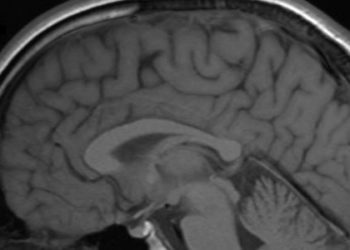Early restrictive fluid management does not reduce mortality in sepsis-induced hypotension
1. Early use of vasopressors combined with a conservative fluid resuscitation did not result in a mortality benefit over a liberal fluid resuscitation strategy.
2. Early use of vasopressors combined with conservative fluid resuscitation also did not result in significantly different adverse event outcomes compared to liberal fluid resuscitation.
Evidence Rating Level: 1 (Excellent)
Study Rundown: Sepsis-induced hypotension often requires admission to the intensive care unit due to hemodynamic instability. Extravasation of intravascular volume into the third space often results in drops in blood pressure, as seen in sepsis-induced hypotension. Fluid resuscitation and the use of vasopressors have been pillars in its management, with the primary goal of maintaining adequate intravascular volume to provide effective circulation. For many patients, both strategies are employed. However, it is unclear whether the approach of initiating vasopressors earlier in the course with a conservative strategy of fluid resuscitation will lead to better mortality benefits when compared with the alternative of being liberal with fluid resuscitation prior to initiating vasopressors later in the course. This study compared these two approaches among adults presenting with sepsis-induced hypotension. The primary outcome of interest was whether one approach yielded a greater mortality benefit at 90-days after the initial event. Results of the study found that there was no difference in 90-day mortality outcome or secondary outcomes of interest between the two modalities. This study was limited in that it excluded patients with extreme volume contraction and those who received more than 3L of fluids in the prehospital setting. Therefore, the results of the study have limited generalizability.
Click to read the study in NEJM
In-Depth [randomized controlled trial]: This study was a multicenter, randomized controlled trial comparing the mortality benefit of two different approaches to managing sepsis-induced hypotension: i) early vasopressor use and conservative fluid management, and ii) liberal fluid resuscitation prior to initiating vasopressor use. All adults with septic-induced hypotension were eligible for the study. Participants with confounding features to the study question were excluded. Those who were screened more than four hours after meeting the criteria for refractory hypotension or more than 24 hours since the first presentation, those who received more than 3L of IV fluids, those who were volume overloaded, and those who were significantly volume contracted from non-sepsis causes. After applying the inclusion and exclusion criteria, 1,563 participants were assigned randomly in a 1:1 ratio to one of the two strategies. The primary outcome was all-cause mortality before discharge at 90 days after the inciting event. Secondary outcomes of interest focused on adverse effects, which included duration of time without ventilator use, renal-replacement therapy, vasopressor use, and discharge from the intensive care unit. Results of the study found that at 90 days, there was no significant difference in all-cause mortality between the two groups (estimated difference, -0.9%; 95% Confidence Interval [CI], -4.4 to 2.6; p=0.61). The secondary analysis found similar results of non-superiority between one strategy over another. In summary, this study suggests that there is no difference between the two approaches to sepsis-induced hypotension.
Image: PD
©2023 2 Minute Medicine, Inc. All rights reserved. No works may be reproduced without expressed written consent from 2 Minute Medicine, Inc. Inquire about licensing here. No article should be construed as medical advice and is not intended as such by the authors or by 2 Minute Medicine, Inc.







